As the breeding season hits full throttle, it’s a good time to review last season’s results and there are some interesting lessons in analysing the stats.
It is particularly illuminating to look at AEPR’s to see where real value might be lurking. Our figures (based on breeders with 10 or more runners) reflect that Robin Bruss’s Northfields Stud finished top of last season’s breeders log.
About Robin
Robin was born into a racing family and been involved with horse racing and breeding all his life as an owner, breeder, agent, auctioneer, journalist, television presenter, researcher, administrator and consultant. It is a dizzying list of accomplishments and Robin had acquitted himself admirably at all of them. Moreover, he boasts a set of racing colours that is the longest running in the country after the Oppenheimers.
Off a relatively disciplined base of 6 mares, Robin has achieved 6 Gr1 winners to date – Circle Of Life, African Lion, August Rush, Zebra Crossing, Basic Instinct and most recently, Champion’s Cup winner, Deo Juvente. As only 0,1% of horses win at Gr1 level, it’s a significant achievement. How has he done it?
“I’ve been in racing and breeding my whole life – and developed my philosophies through study, observation and experience. My father Les registered his silks 1943 as an owner/trainer, and was a founding member of Borrowdale racecourse in 1957. My brother Neil became a trainer and I invented myself as a bloodstock agent starting out in Zimbabwe.”
Robin’s working knowledge of the Thoroughbred racing and breeding industry is encyclopaedic. He was secretary for the Zim TBA for 8 years and worked as an auctioneer in partnership with Peter Lovemore. “We compiled the National Yearling Sales catalogue for South Africa. For four years we manually created pedigrees and race records for every single horse – this taught me the development of families. Ultimately we were replaced by computers which came as a big shock. We used to get paid R5 per pedigree.”
In 1982 Robin made the move to South Africa joining the Form Organisation as a partner and was a co-producer of the second Form Stallion Register compiling the female lines by hand. In 1983 he moved to Johannesburg and went out on his own to operate as a consultant to Edgars Stores founder, Sydney Press.
Mentor
Sydney entrusted the young Bruss with his start up Coromandel Stud in Lydenburg, Eastern Transvaal. They bought the first ever R100,000 yearling when acquiring Gallantry (Plum Bold-Sun Lass) at the National Yearling Sales, who was to win 9 races including the Gr2 Merchants and later become a stallion. But the operation hit the headlines in 1983, when they acquired the filly Tecla Bluff (Arg), who was never beaten in the Press silks, winning the Gr2 Republic Day Handicap, the Gr1 Rothmans July and the Gr1 Clairwood Winter Handicap in 1983 and become Horse of the Year.
When she retired, Press decided there wasn’t a stallion in South Africa good enough for his filly, so Robin went looking for a stallion in Ireland and bought Northfields (USA) – already famous as the sire of 8 Gr.1 Winners in Europe. “Although already 15 years old, Coolmore allowed us to buy him for USD$2,5million, an unprecedented figure back then,” Robin reminisces. “We then acquired 50 mares and I was able to start building the families I wanted. We bred the Gr1 Cape Guineas Face North in the first crop, but then Sydney became mired in a messy divorce and within 3 years the farm was dispersed.”
However, Northfields made an impact on the stud book of South Africa, becoming a Champion Sire of broodmares, both in South Africa and in Great Britain. His influence through his daughters is marked, numbering 64 individual Gr1 Winners to date – the latest and probably last being the 6 year old Sail South, who won Greyville’s Gr1 Champions Cup in July.
Northfields Stud
Robin acquired as many Northfields mares as he could, setting up Northfields Stud and this foundation has served him well. “Sydney gave me a parting gift which represented the best of the Coromandel Farm breeding, the only daughter of Northfields and the great mare Tecla Bluff. Named Teclafields, it was disconcerting when she only won one race on the track, but she become the dam of three Gr1 winners for me – Circle of Life, who won the Garden Province Stakes and finished 3rd in the July; African Lion, who won the Champions Cup; and Zebra Crossing, who won the J&B Met.”
Circle of Life is now the dam of 2017 Gr1 Champions Cup winner Deo Juvente (Trippi) which Robin bred at Drakenstein Farm on a foal share, selling the R3.8m earner for R500,000 as a yearling.
Log Leader
Thanks largely to the efforts of Premier’s Champions Challenge hero, Deo Juvente, Northfields Stud topped the national breeders’ log by AEPR with a final total of R316,516 last season. But he was not the only good horse bred from the select band of 6 mares, many of which are often mated to unfashionable stallions.
Strongman (aka Horse of Fortune in Hong Kong) (Stronghold-Sweet Virginia), sold for R150,000 and has won 6 races in Hong Kong at Class 1 and Group level, taking his earnings over R15 million this year. Will Pays (Imperial Stride – Rattlebag) was sold for R60,000 as a yearling and in achieving his 9th win in Turffontein’s Gr3 Spring Spree Stakes on 2 September, took his earnings over the R800,000 mark.
Then there are the two unbeaten youngsters, now 3 year olds – Billy Silver (Silvano – Evening Attire), who won in a canter at Scottsville on 3 September and Do It Again (Twice Over – Sweet Virginia), who landed his second win on the trot at Kenilworth on 9 September. Both look destined for Graded races.
Breeding For The Winning Post
Robin has a distinct view on breeding relying on what he calls probability theory. “When you’ve only got 6 mares, you’ve got to have a very tight focus. Bear in mind that the odds are stacked against you if your purpose and focus is to breed a champion. As only 3% of all races are Graded Black Type races, you have a 97% chance of not achieving this goal. Therefore, the pressure is on to focus every means to reduce the odds of failure.” But Robin loves nothing if not a challenge.
“Selection is based on performance as the breed progresses on the base of racing class. Independent studies of 50 years of results in USA and Europe came to similar conclusions. Donald Lesh in Europe found that you increase your probability of success by 800% if you breed with graded stakes winning mares. Joe Estes found that this held true in America, but stated it was closer to 1,400% greater probability. Therefore ideally, I would like to own 6 graded stakes winning mares, but one must cut ones cloth on budget, and I have found success by keeping as close to racing ability as possible, even if not particularly fashionable. However, on this basis, the rewards come at the winning post and not in the sales ring. I might yet graduate to owner-breeder status and stop selling yearlings altogether.”
The Importance of Family
“The second most important characteristic is to build long term families. Look at all the really great farms – all have great families they have built from generation to generation – the key is the quality of the mares. I’ve only managed to build 3 families – of which one has died out. My first mare was Mendere which I bought when I was 17 for 1800 Guineas, then R3,600 on a loan from my Dad. I had her mated on a free service to Lombard (also the broodmare sire of Urban Sea) and she produced Chrysanthemum, who was my first runner. She was very slow – the only real fault that a racehorse can have! But I sent her to speedster Divine King and she produced Hachiman who became Champion of Zimbabwe and won 21 races of which 14 were stakes races. The quality emerged in the next generation. I sold a stakes winning daughter to Tony Taberer which would produce Minelli, who then produced champion sprinter Val de Ra, now the modern strain of this pedigree. Her daughter, Miss Frankel is inbred to Lombard via Frankel,” he notes. “Meanwhile, the daughter I kept died without producing any winners. This game can be cruel!”
“To me the keys are racing class, understanding the characteristics and traits of names in pedigrees and then physical compatibility in matchmaking. This is also why Black Type is extremely important in the art of selection and critically important to breeders. For this reason the Graded Races panel has a considerable responsibility and I am disappointed with the recent downgradings of important races, particularly the stamina events. When racetrack executives tamper with race gradings they tamper with the breed.”
Industry contributions
As an agent, Robin has travelled the world and bought and sold horses in all 5 continents, achieving the distinction of selling the great American champion Animal Kingdom from Barry Irwins’s Team Valor to Australia’s Arrowfield Stud and then going to Dubai to watch him win the $10m Dubai World Cup 2013.
He introduced Barry Irwin and Andreas Jacobs to South African racing as well as a plethora of stallions that have had long term significant impacts for the breed.
As an industry player, Robin served as a director of the NHA for 9 years, was a member of the TBA council for 6 years, is a Trustee of the AHS Trust, was one of the founding members and first CEO of Cape Thoroughbred Sales and currently is on the SA Export Task Team. He operated Delta Bloodstock which pioneered owner syndicates, operated a large bloodstock insurance business, and he chaired the SA Racehorse Owners Association. He has also spoken at numerous industry conferences overseas and in the South African parliament.
“In recent times, I have cut back on my involvement in racing and enjoyed myself in new challenges in other industries, within agriculture, mining and charitable development, all on the simple philosophy of doing good. I love the game, but I race infrequently in Johannesburg these days because of my disappointment with the manner in which our industry is operated and organised. Our controlling bodies have overseen a disintegration of the ethos of the sport in favour of bias of betting and this has caused a decline across the spectrum of the game. It does not portend well for the future unless there is change.”
“The sport must come first because every player, and every fan and every person who derives a living in the game has a stake in it – not only those within the betting business. When you realise that the number of breeders has declined from 1,400 to 180 over the past 20 years, you realise the extent of the problem. But that’s a subject for another day,” he says firmly.
Have Your Say - *Please Use Your Name & Surname*
Comments Policy
The Sporting Post encourages readers to comment in the
spirit of enlightening the topic being discussed, to add opinions or correct
errors. All posts are accepted on the condition that the Sporting Post can at
any time alter, correct or remove comments, either partially or entirely.
All posters are required to post under their actual name and surname - no anonymous posts or use of pseudonyms will be accepted. You can adjust your display name on your account page or to send corrections privately to the Editor. The Sporting Post will not publish comments submitted anonymously or under pseudonyms.
Please note that the views that are published are not necessarily those of the Sporting Post.
12 comments on “Robin Bruss”
Leave a Reply
‹ Previous
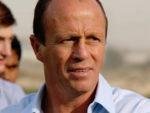


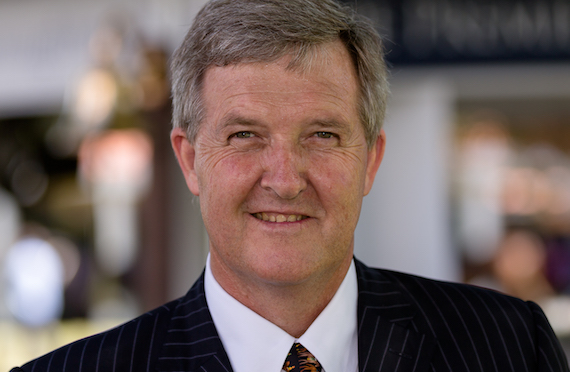


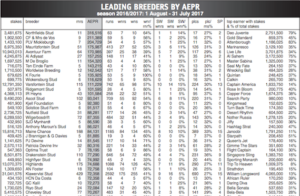
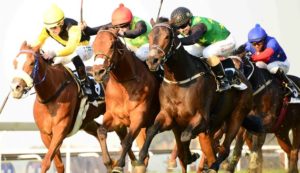

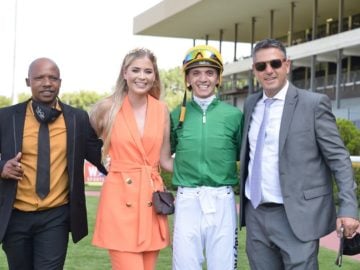
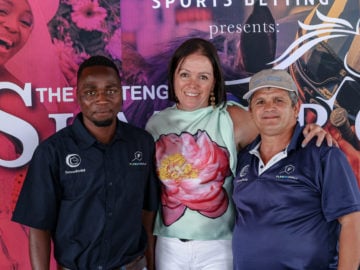
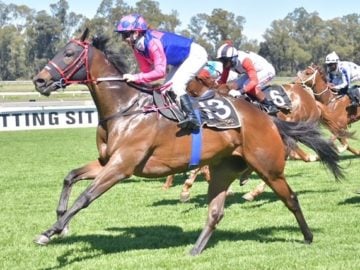
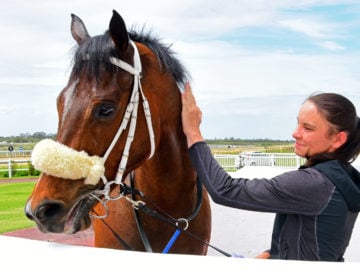
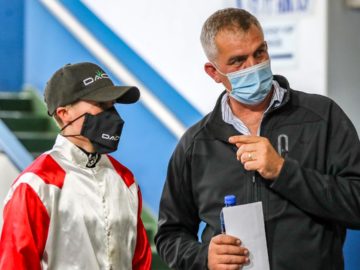






It was Robin who invited me to auction in South Africa 18 years ago. The rest as they say is history! Thank you for the opportunity Robin.
An absolute gentleman and a great ambassador for racing.
An industry that has robbed an individual of Robin Bruss’ passion must look inward and question itself deeply in order to find out what it must do to correct the game and retain players like Robin, who are the very heart and soul of the sport of horse racing. His loss to the game in South Africa is immeasurable and speaks volumes about the figures that have sought to quiet this giant’s voice. Am I surprised Robin leads this log? Hardly. It is a tribute to his understanding of the components of what make a winner in the complicated sport of Thoroughbred breeding and racing. And he accomplished his achievement without spending a great deal of money. He used intellect, horsemanship and good old fashion horse trading. Congratulations to Robin Bruss!
That is some summery of a CV.
What a shame that people such as Robin have given up on SA Racing , this has yo make one think.
Its a pitty the powers at be are never listening.
The last paragraph pf this interview got to me – number of breeders has declined from 1,400 to 180 over the past 20 years – wow –
Phumalela are running an advert on Tellytrack boasting and lying that “Horse Racing employs 100 000 jobs in the industry”.
In their dreams the figure would be lucky to be 10 000 at this stage.
BS baffles brains, especially when our government does not care and the operators are only in for self enrichment and nepotism, .
I was privileged to have met Robin Bruss at the parade ring at the Met introduced by Robyn Louw. I was in the Cape doing Met history for Gold Circle which was published by SP. Showed him a picture of my gift horse and he remarked that he looked like his grandfather Sadlers Wels which gave great hope. Both Robs are wonderful assets to the great game.
I can remember when Circle of Life ran in the Durban July and Jeff Lloyd rode her. In the lead up to the race, I can remember approaching Robin and asking him what his thoughts were of Circle and he spoke to me not as persona non grata but a fellow horse person ,if there is such a word. He was humble, articulate and clearly in love with Circle. He didn’t just pass me off but engaged with me about the merits of her form. What a pleasure it was to listen to another human being with such humility and such vast knowledge. Great read…Make the Circle Bigger ;)……PS. Kanwa rode another third I think on Circle 🙂
Than you for the kind comments, To clarify the stats : When Phumelela was formed, the Chairman of the Gauteng Gambling Board stated in an industry speech that employment in racing and breeding in South Africa stood at 100,000 persons. The welfare of the Sport and the empowerment of those employment within it were entrusted to the Racing Trust and its active arm, the Racing Association. In 2011, Racing South Africa’s UCT led census noted the number of racetracks sold and breeding farms closed and establshed the actual current figure at 15,160 – this assumes the loss of 85,000 jobs, and therefore the failure to protect and grow the sport. I presented these industry graphs and stats to the Parliamentary Portfolio hearings in 2013 attended by the racing and betting operators. That the betting organisation uses 20 year old figures in its current advertising as a form of self aggrandisement is quite evidently disingeneous.
Thank You Robyn ,
As per Phumelela Website
The Phumelela Group now has a workforce of 1,600 employees in South Africa.
Phumelela boasts an 84% black staff complement of which 72% are female.
Black managers manage more than 80% of our retail outlets and approximately 85% of these are woman.
Currently, 46% of our middle management are black staff with 30% being female.
Our senior management comprises of 20% black staff and 15% woman.
Lets say the 180 Farms employ an average of 30 staff and grooms = 5400
Then lets say the balance is made up of Gold Circle staff and others – That figure would stand at 8160 . Making up your total of 15160 .
That was in 2011 – by now it is less than 10 000. Phumelela have used the 100k figure in their Annual Reports , advertising for years .
“The welfare of the Sport and the empowerment of those employment within it were entrusted to the Racing Trust and its active arm, the Racing Association.”
So the RA is to blame.
When will the Directors of the RA and the New Chairman Mr Leaf realize that they have a problem and put some one as the CEO that has the qualifications to do the job .
Not someone who has been there for the last 8 or 9 years and has not got a clue on what he is doing.
This is a proper horsemen family. When Robin speaks, I listen.
As Barry Irwin states above, it is indeed a sad state of affairs when someone with the calibre, knowledge and passion for the sport that Robin Bruss has, is voluntarily reducing involvement.
Not a day or week goes by without me having a similar conversation with someone who was deeply involved and is no longer, in the sport.
The powers that be continue to plow money, employ friends and family into areas supposedly driven to attract “new” customers – not sure if they are owners, breeders, even punters – or just plain freebie hangers on. Yet no one, but no one addresses the “brain” drain the sport currently endures. Over 2000 colour holders, being represented by an organisation that is membered by barely half of them, and the numbers reduction continues unaddressed.
The mind boggles
Robin, congratulations on being leading AEPR Breeder. I know you need no taps on the back, and the pain of seeing some of your previous achievements i.e. Bloodstock SA endure the challenges they currently do, must be disappointing to bear. It is refreshing you soldier on – for the horse.
A more respected and knowledgeable horseman than Robin Bruss you couldn’t wish to find. Why is his expertise and knowledge not used ? Simple, the Operator and its front-men in the RA, Trust and NHA would be exposed and not be able to hoodwink and shortchange punters, owners, grooms and the industry in general, as it might affect its bottom line. The Operator sees horseracing as a burden and the less they spend on it the happier they are, hence the closure of racetracks, racing surfaces, stakes shortcomings and the exploitation of its gambling license in a seemingly unregulated industry. This they would never be able to get away with, with a Robin Bruss at the helm.
Fantastic Robin,
a true believer of the ‘sport’. You have always been an absolute gentleman and a great ambassador for Horse Racing in many countries.
Come a long way from the’ Bachelor Boy’ days at Borrowdale Park. Such fond memories of a time when many of us were just starting out. Well done and best wishes for the future!